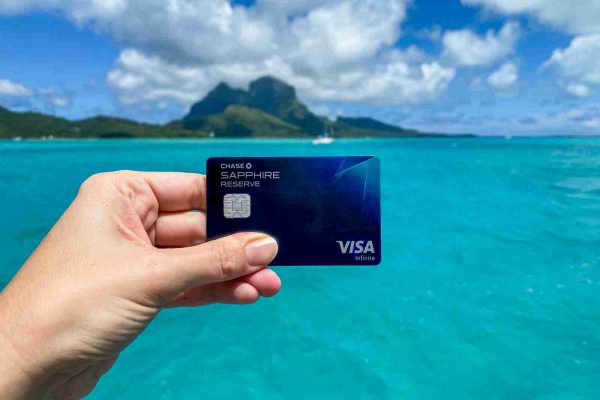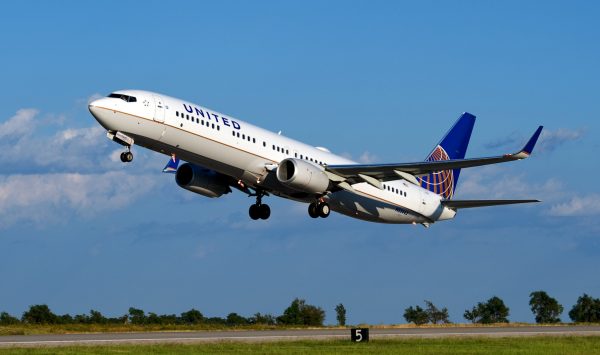The future of loyalty programs after the pandemic
Signing up for credit cards through partner links earns us a commission. Terms apply to the offers listed on this page. Here’s our full advertising policy: How we make money.
Without question, these are unprecedented times for the travel industry and loyalty programs as a whole. For many travelers, 2020 has been an opportunity to slow down, reevaluate travel priorities and consider what trips and vacations will be the most fulfilling or valuable when travel (hopefully) resumes in the not-so-distant future.
In the midst of this uncertainty, travel companies and brands have been forced to fight for their loyal customers like never before. Airlines and hotels have found themselves in financial turmoil, relying on goodwill from travelers to hopefully reignite business once restrictions are lifted and travel demand returns to its 2019 levels.
What have travel companies done to maintain loyalty during the pandemic?
Thus far in 2020, airlines, hotels and credit card companies have been vying to support customers by offering extended elite status benefits and additional perks in attempts to retain their loyalty. The offerings have been fairly generous, but also somewhat necessary, as very few travelers would have maintained elite status otherwise since travel has been quite restricted for the last 6 months.
Banks have been perhaps the most benevolent, responding almost immediately with increased benefits for existing credit card holders. American Express launched wireless and streaming credits while Chase and Citi increased the flexibility for redeeming travel credits on their premium cards. Many cards have seen increased spending bonuses for pandemic-friendly purchases, like groceries and food delivery.
Additionally, card issuers are still rolling out new benefits (such as an increased one-time travel credit by American Express) for those whose annual fee becomes due in the latter part of 2020. These efforts are appreciated, but you should still do the math to see if keeping your premium travel credit cards open makes sense if you’re not using many of their benefits.

Airlines and hotels have also proactively tried to please travelers, mostly by increasing the duration of previously earned elite status and by offering customer-friendly cancellation policies for flight and hotel bookings. In fact, most of the major U.S. airlines recently made their coronavirus change fee waivers permanent when they announced that they would be eliminating change fees forever on domestic flights.
For more information on the specifics of how airlines are supporting elite status holders and customers during COVID-19, read our posts about American Airlines, United Airlines, Delta, and Southwest and how they are responding to COVID-19.
Hotels and airlines have also recently launched a wave of very lucrative promos when using cash for booking travel. Hyatt and Hilton are offering triple and double points, respectively, on paid stays. And United recently offered MileagePlus members 5x bonus miles when loading funds to their TravelBank for future flights on the carrier.
What will happen to award charts after the pandemic?
Many folks are also wondering what will become of airline award charts after the pandemic is somewhat under control. For me personally, I’m curious to know if I should book 2021 award flights now (with the flexibility to cancel if health conditions do not improve) or hold off in hopes of airlines offering award flight sales or increasing award availability with the aim of generating air traffic demand.
According to airline industry expert and consultant Bob Mann, we may not be so lucky. As most award travelers know, most airlines have gotten rid of historically traditional flight award charts and thus can increase or decrease reward flight costs as they deem fit.
“Changes will be a black-box function of what goes on behind the scenes, not the visible trend of inflation that used to periodically manifest as changes to a [award] chart,” said Mann.
This is a disappointing, but realistic, evaluation, as airlines have full discrepancy to charge what they want and when they want as a result of now-hidden award charts. Realistically, there’s very little accountability with these programs.
Additionally, airlines and hotel programs have been frequently selling miles and points throughout the pandemic, both to consumers and to banks, in hopes of padding their revenue numbers. These millions of extra miles mean that there will be even more competition for future award flights, and therefore airlines may have even more leverage to increase award flight costs once travel has returned to previous demand levels.
However, we have seen some dirt cheap award prices on select carriers recently. For instance, United had a plethora of domestic flights for just 5,000 miles one-way — that’s less than half the price that the old award chart would have charged. The real question is, are these just one-off promotions, or longer-term deals that will be available for some time?

How will loyalty programs woo back travelers once the pandemic is over?
Airlines are hurting to re-engage their once loyal customers. Business travelers make up a significant portion of major U.S. airlines’ revenue numbers, so carriers are being forced to reconsider how they can woo back flyers once the pandemic has (somewhat) eased or a vaccine is created.
Mann expects that “airlines will ‘reboot’ the [frequent flyer] programs to try to develop some excitement, and to monetize pent-up demand for travel.”
This certainly aligns with personal experience and that of my family and friends — prolonged periods of quarantine and lockdown have created an immense amount of wanderlust and hopeful optimism for future trips.
Although I was personally optimistic about taking advantage of eventual airfare sales, Mann disagrees.
“It is important to recognize that even when demand returns, airlines will need to pay down newly incurred debt in the tens of billions each for the three network carriers, which will mean a desire to increase fares and reduce inducements, not discount pent-up travel demand, or make available inventory for free, revenue displacing award travel,” Mann explained.
Hopes of discounted future airfare may be unrealistic as airlines will be primarily scrambling to pay the bills, as opposed to solely trying to win back business.
While future sales once travel is safer may not happen, travelers have a unique opportunity to book reduced-price travel right now. So if you do feel comfortable traveling now or in the near future, there are deals to be had out there, including dirt-cheap airfare and hotels.
Even cruise, hotel and tour companies have temporarily reduced prices across the board in attempts to generate revenue and ensure that 2021 travel (and for some optimistic folks, later in 2020) draws a significant enough crowd for businesses to stay afloat. The future of travel still remains unclear, and any optimist or expert analysis largely depends on the future of global health response to COVID-19.
Bottom line
COVID-19 has created a stop on travel never before seen in our lifetimes. While average Joes, road-warriors and travel enthusiasts are currently locked down in quarantine, plenty are still scheming their next adventure and looking optimistically at travel planned for 2021.
Mann believes that the future of travel may not be all sunshine and roses as airlines will be obligated to quickly regain revenues lost during 2020. So for folks holding their breath for upcoming sales or award chart reductions, perhaps you should book now (with flexible cancellation) in anticipation of significantly increased travel demand in the months and years to come.
Featured image by ShutterStock
Editorial Note: We're the Million Mile Secrets team. And we're proud of our content, opinions and analysis, and of our reader's comments. These haven’t been reviewed, approved or endorsed by any of the airlines, hotels, or credit card issuers which we often write about. And that’s just how we like it! :)






Join the Discussion!